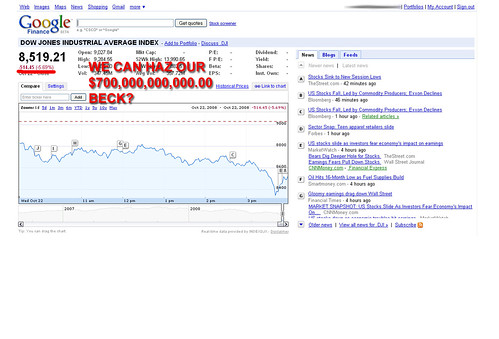There is a ton of information out there about investing. There is so much information available that after reading everything, you will just end up confusing yourself.There are a couple of investing fundamentals that you can learn about to add to your knowledge. This article contains all you what you need to know.
When your aim is to build a portfolio that maximizes long-range yields, your best bet is to choose strong stocks from a number of different industries. Though the market, as a whole, records gains in the aggregate, individual sectors will grow at different rates. If you have holdings in different market sectors, it is possible to take advantage of big gains in individual industries and improve your overall standing. You will also find that the balance re-balances itself over time, meaning you will see profits in one sector one quarter, and in another sector the following quarter.
This allows you to have a cushion if you lose a job, unemployment costs, so that you do not need to dip into your investments.
Once you have narrowed down your choices of stocks, be sure to only invest a small percentage of your portfolio into that one stock.By doing this you protect yourself from huge amounts of money if the stock crashes.
If you value the assistance of a broker, but want the option of also trading on your own, look for a broker that can offer you both online and full-service options. This way, you can let the broker handle a part of your portfolio while you work with the rest of it. This strategy can provide you with elements of both professional help and personal control in your stock trading.
Don’t try and time markets. History has proven that the best results happen when you invest equal amounts of money into the market over a greater period of time. Figure out how much you are comfortable investing.Then, make a habit of investing regularly, and stick with it.
If you’re a beginning investor, be wary that making big returns overnight is tough. It usually takes several months for stock prices to rise, difficulty sets in for awhile before you can make any profit. Patience is key to using the stock market.
Give short selling a try. This is when you utilize loaning stock shares. By promising to hand over an equal number of shares later, an investor can borrow stock shares immediately. Then, the investor first sells the shares at a higher price, and buys them at a lower price to make a profit.
Don’t overly invest too much into any company that employs you. Although it seems good to support your company by owning its stock, it does carry a significant risk. If something bad occurs to your business, both your portfolio and paycheck will be in danger. However, if employees can buy company shares at a nice discount, you might have good reason to buy.
Don’t invest in a company’s stock of the company you work for. While it may be nice to support your business by holding plenty of company stock, you do not want your portfolio to consist mainly of that investment. If the largest chunk of stock you own is that of your company’s and your company does poorly, you will be losing money on it twice.
It is not a good idea to invest too much money into your own company. It’s important that your entire portfolio isn’t based on a single company’s stock. If you mainly invest in your company’s stock and it performs poorly or the company goes under, you would stand to lose a significant portion of your wealth.
Avoid unsolicited stock tips or advice. Listen to financial advisers that you speak with, particularly if they are successful as well. There is no substitute for doing your own research and homework, and most unsolicited advice is being given only because they profit from it in some way.
With all that you learned, you should now have a better idea of what it takes to invest. This article has provided you with many of the basics, and explained how to apply them. It is important to look ahead and plan for your financial future. Now that you’ve read this article and know what to do, get started!
Keep in mind that all of the cash you have is not profit. A bank account balance is always essential, whether it be for your personal needs or investment portfolio. While is it nice to be able to reinvest some cash or spend some of your gains, you have to keep money on had so you can afford paying your bills. Make sure you keep an emergency fund of six months living expenses somewhere liquid and safe.
